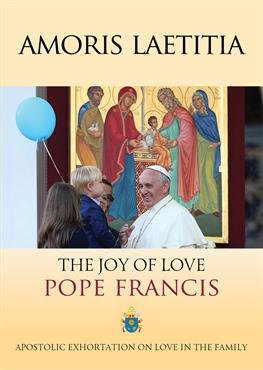The Tone and Style of the New Apostolic Exhortation is as significant as its content
 Catholic teaching might not change, but there are certainly some mighty lurches of style and register
Catholic teaching might not change, but there are certainly some mighty lurches of style and register
The way papal encyclicals are written is sometimes as telling as the content. Pope Benedict’s encyclicals combined limpid beauty and elegance with the occasional longueurs of the academic monograph. We tend to think of Pope John Paul II as a great restoration figure, the man who put the brakes on the runaway church. But he was the first Pope for a hundred years not to have suffered the mind-numbing experience of a neo-scholastic training, and his first encyclical, Redemptor Hominis, pulled off the remarkable trick of presenting Catholic teaching of pristine purity in a strikingly original philosophical framework. The confident language and theological boldness of that encyclical announced: Watch out! This is going to be a very different sort of papacy.
I’ve been reading Amoris Laetitia, “The Joy of Love”, Pope Francis’ new apostolic exhortation on the family. Despite the refreshing tone of voice, Vatican documents still come with the same stuffy titles.
The theology, I think it’s not unfair to say, is admirably uninventive and traditional, but the psychology is astute, shrewd and salty. Lengthy passages of the 256-page document are cheerfully lifted from the encyclicals of previous popes and the recent Synod documents.
But when the quote marks and footnotes fall away, Pope Francis finds his own voice. It’s a voice that is refreshingly immediate, savvy and down to earth, and quite unlike that of any of his predecessors.
It’s impossible to read Amoris Laetitia and not think, here is someone who has been a guest at many a boisterous family dinner, who understands the rough and tumble of relationships and family life. Francis is every inch the “family man”.
There are of course folksy platitudes and agony-aunt nostrums in Amoris Laetitia, but the chapters in which he talks directly to couples about how to build and sustain relationships and families have the smack of realism and experience.
“A patronising tone only serves to hurt, ridicule, accuse and offend others. Many disagreements between couples are not about important things. Mostly they are about trivial matters. What alters the mood, however, is the way things are said or the attitude with which they are said.”
There are canny and perceptive observations about in-laws, the importance of seminarians spending time with families and the vital need for good marriage preparation. Francis writes of fathers who are too controlling, and asks families to embrace “even those who have made shipwrecks of their lives”.
He talks of depression and exhaustion as well as of joy and delight. As well as praying together, he encourages couples to also “find time for prayer alone with God, since each has his or her secret crosses to bear”.
“Much hurt and many problems result when we stop looking at each other,” he writes. He name checks Babette’s Feast. He talks of the “dogged heroism” of love, and he concludes, with seasoned, wry wisdom, that love “is a kind of craftsmanship”.
And when it comes to teaching the faith, too, Francis shows himself an astute reader of situations.
“The ability to say what one is thinking without offending the other person is important,” he writes. “Words should be carefully chosen so as not to offend, especially when discussing difficult issues”.
This is in one of the many passages where Francis is giving shrewd practical advice to couples. But he could just as well be describing his approach to dealing with the bishops who don’t share his determination to look again at the issue of the admission of divorced and remarried Catholics to communion.
In Amoris Laetitia he emphasises, over and over again, how precious is the unchanging teaching of the Church on the indissolubility of marriage. And he - just about - leaves room for those who would prefer to leave present disciplines and protocols undisturbed; to screw up their eyes and see the document as confirming their position.
Francis is sometimes seen by his critics as garrulous, even rambling. But there’s no muddle or murkiness in his treatment of the issue here.
Catholic couples in the badlands on the wrong side of canon law and in awkward circumstances have for many years (for centuries, I suspect) been able to find priests and bishops willing to look with discernment and mercy on their “irregular” situation and help them find an honourable way to return to taking communion.
In the John Paul II papacy there were efforts to close down these delicate conversations, but with only fitful success. Gently and subtly but firmly and clearly (look, for example, at the velvety smooth footnote 351), Pope Francis is saying to these priests (many of whom have of course quietly continued to counsel couples in a difficult fix to practise their faith fully according to their conscience): be mindful of the Church’s unchanging teaching on marriage, be humble, be cautious, be tactful - and carry on.
- Church should do more to welcome ‘unconventional couples’
- Celebrating 80 years of marriage
- How Churches Can Help Cut the Divorce Rate of Any City
- Future of Catholic weddings in Britain in doubt, MPs and Peers told
- Future of Catholic weddings in Britain in doubt, MPs and Peers told
- Same-sex marriage could threaten religious freedom in England.
- How Churches Can Help Cut the Divorce Rate of Any City


 Votes : 0
Votes : 0









